Why battle for Movement party CEC seats is fierce
“The new entrants feel the other leaders have stayed for enough time and should give way for others, and yet the old ones feel they now have the requisite experience to stay put,” Dombo, who was Bunyole East MP for 20 years, states.
Among, who is seeking re-election as Bukedea Woman MP, also wants the CEC position of the 2nd national vice chairperson (female), which is currently held by the First Deputy Prime Minister and Minister for East African Community Affairs Rebecca Kadaga, who is seeking to retain it.
KAMPALA - The fierce battle for positions within the ruling National Resistance Movement (NRM) party’s central executive committee (CEC) speaks to more than just intra-party ambition.
Analysts say it reveals a complex web of personal political calculations, institutional evolution, and the underlying anxieties about succession, survival, and strategic positioning.
NRM's CEC is not merely a party structure; it is the de facto nucleus of political decision-making in Uganda, and advises party chairperson President Yoweri Museveni and often serves as the final arbiter on matters ranging from parliamentary candidature to Cabinet appointments.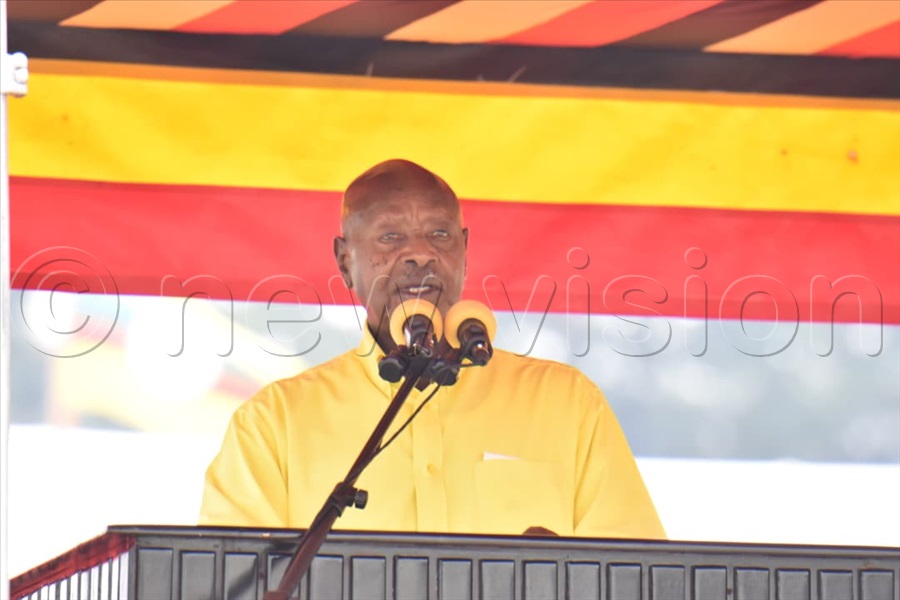
NRM party chairperson President Yoweri Museveni remarks at Kololo during the party's first meeting of the fourth National Resistance Movement (NRM) national conference. (All Photos by Miriam Namutebi, Simon Peter Tumwine, and Joseph Makumbi)
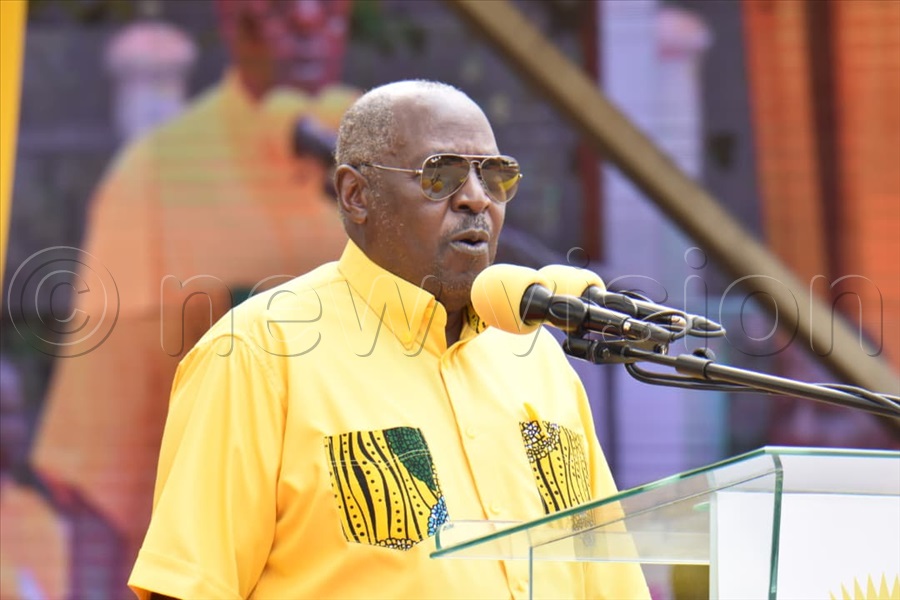
So, to be on CEC is to have a direct hand in shaping Uganda’s political architecture, according to political analyst Crispin Kaheru, a member of the Uganda Human Rights Commission.
Kaheru tells New Vision Online that the stiff competition is, therefore, a reflection of both the enduring centrality of the NRM in the country’s political life and the growing undercurrents of transition politics.
“The scramble is not just for power within the party; it is for positioning within the broader national context. This CEC race, therefore, is as much about today’s influence as it is about tomorrow’s leadership,” he said.
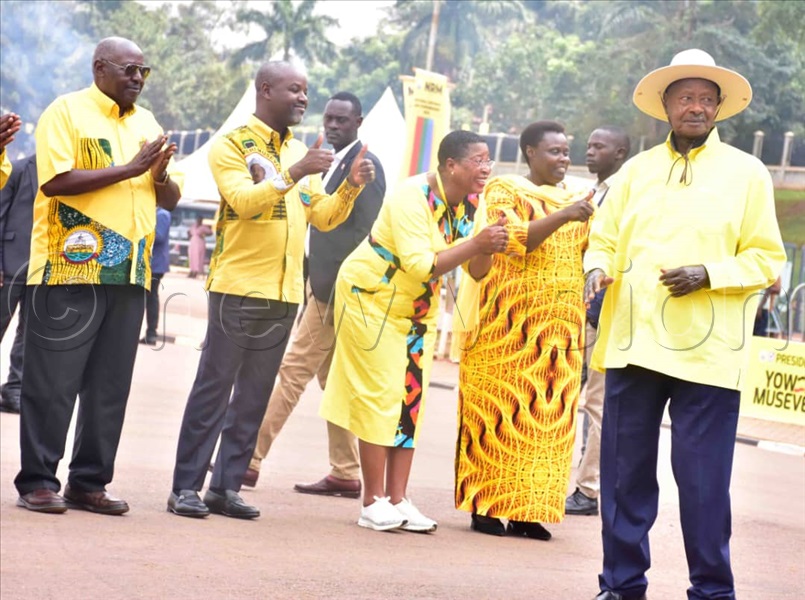
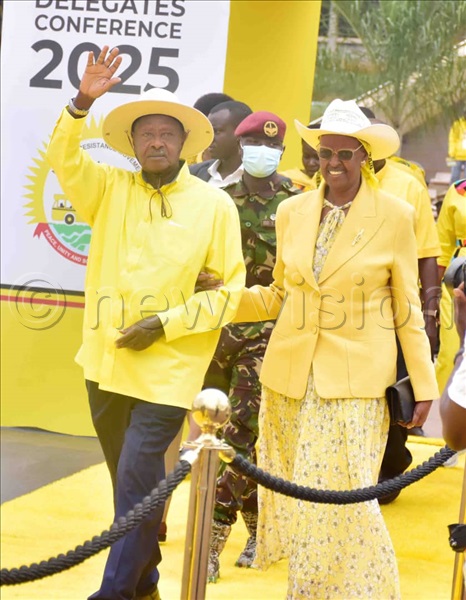
NRM secretariat director of information and publicity Emmanuel Dombo says CEC is the apex organ of the NRM that has delegated authority to run the affairs of the party.
“CEC approves all major appointments by the party, designates all positions in the committees of parliament and the parliamentary commission, and it is in a vintage position in case one was to lobby for anything or for anyone,” he says.
He notes that the level of competition demonstrated this time may be because it has taken over 10 years since the party had an election for some of the league positions on the CEC.
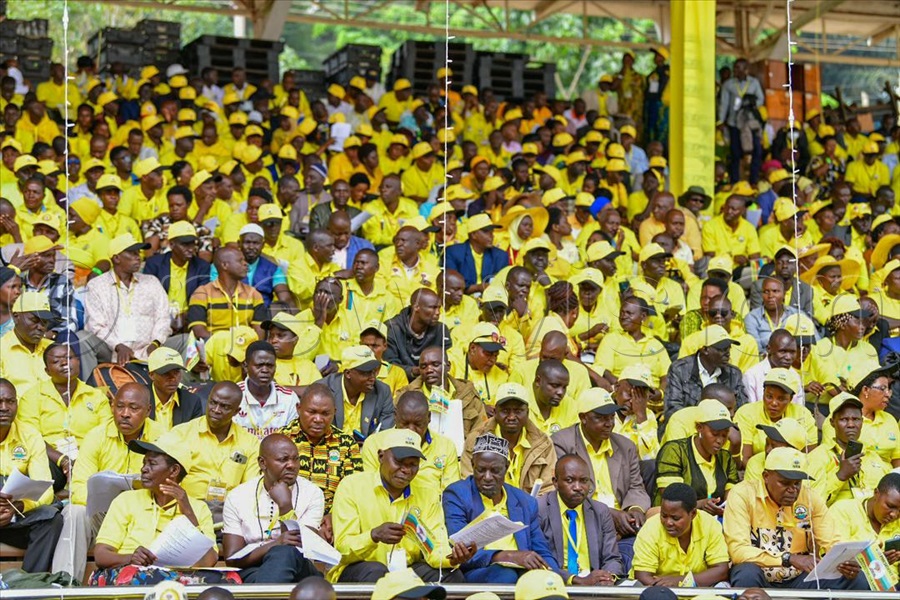
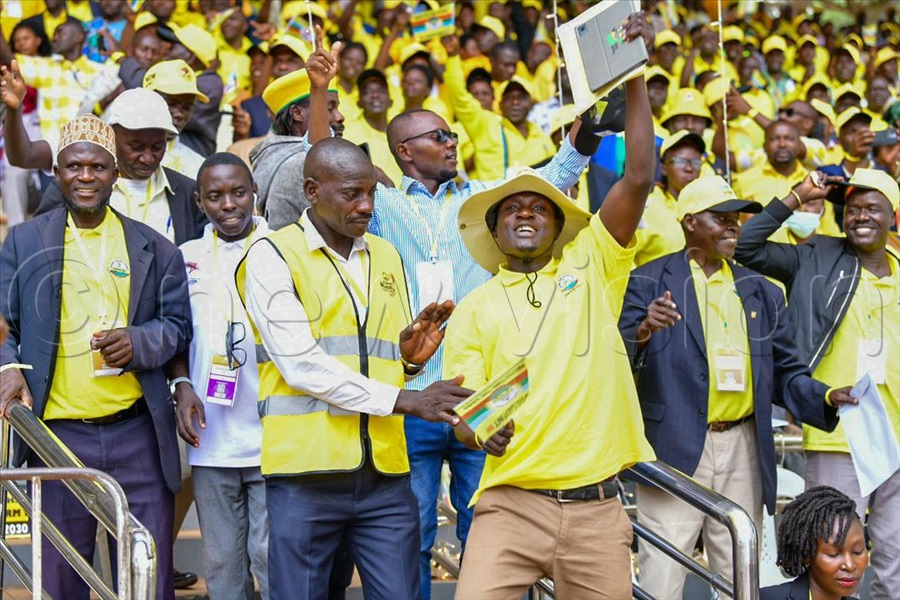
“The new entrants feel the other leaders have stayed for enough time and should give way for others, and yet the old ones feel they now have the requisite experience to stay put,” Dombo, who was Bunyole East MP for 20 years, states.
He, however, argues that the stiff competition demonstrates the increasing importance of the political parties in determining the direction of the affairs of the state.
Close to 300 party members had been nominated to vie for various positions of CEC for the period 2025-2031.
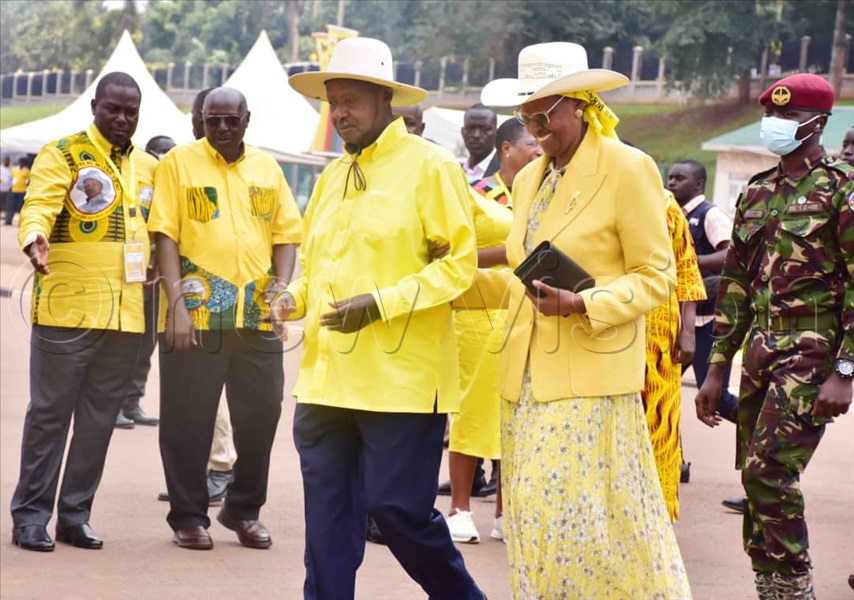
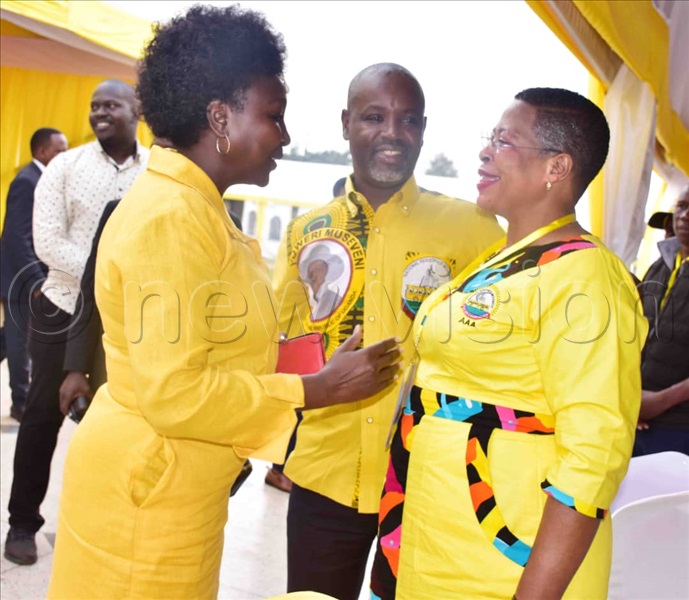
The candidates are contesting for the 17 elective positions of the party out of the 28 CEC positions.
The elective CEC positions include: one party chairperson, two national vice chairpersons, six regional vice chairpersons, and eight league chairpersons.
The non-elective positions are: secretary general, deputy secretary general, national treasurer, deputy secretary general, chairperson of the party’s parliamentary caucus, and all chairpersons of the special league committees, as well as chairpersons of the commissions.
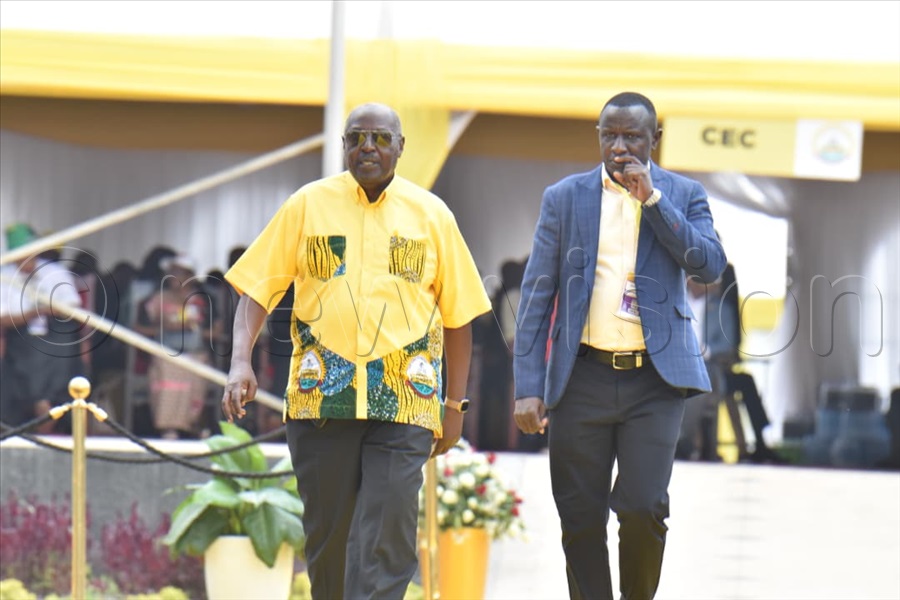
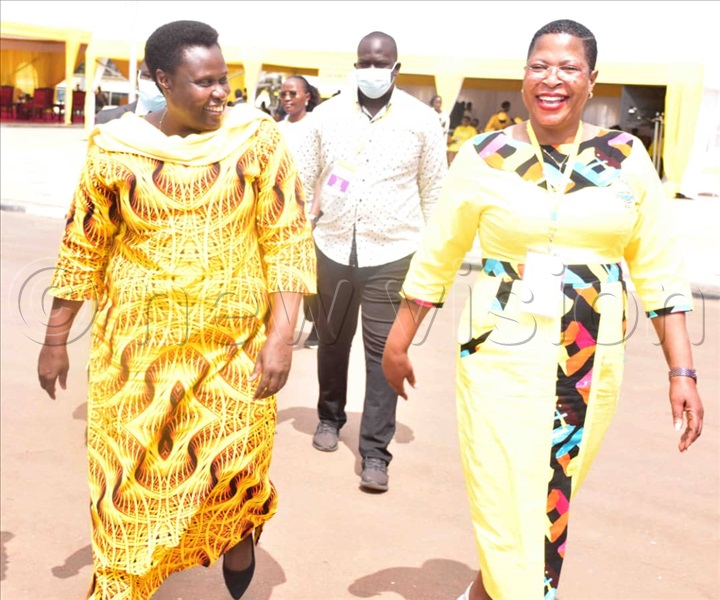
“For many political heavyweights, therefore, gaining a seat at that table is about wielding influence that extends far beyond party lines,” Kaheru says.
He argues that securing a CEC seat is an investment in political capital, relevance, and protection, where access also determines survival for some people.
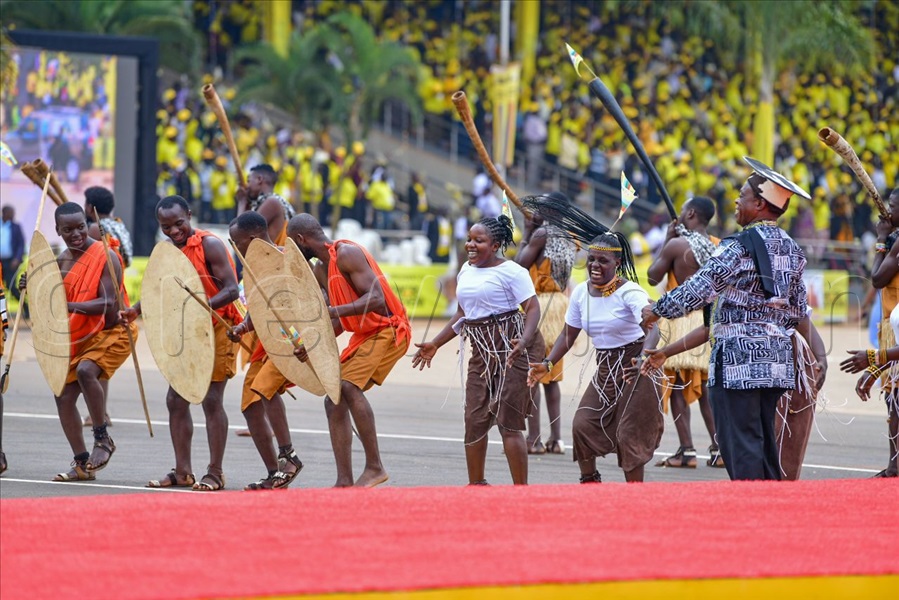
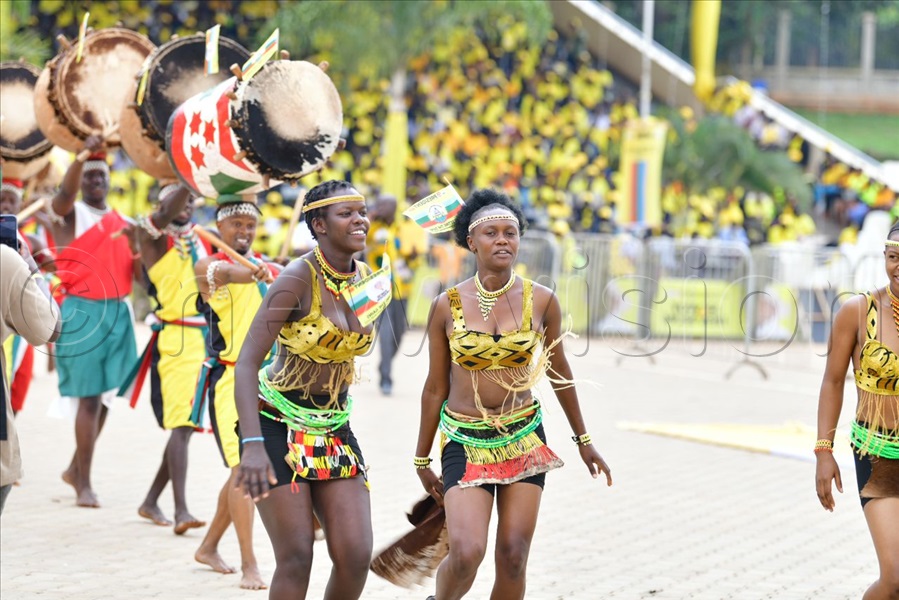
“While President Museveni remains firmly in control, there is an unspoken but increasingly palpable conversation about succession. This conversation could also inform political strategy. Aligning with or positioning within CEC becomes a strategic hedge against the uncertainties of transition,” Kaheru states.
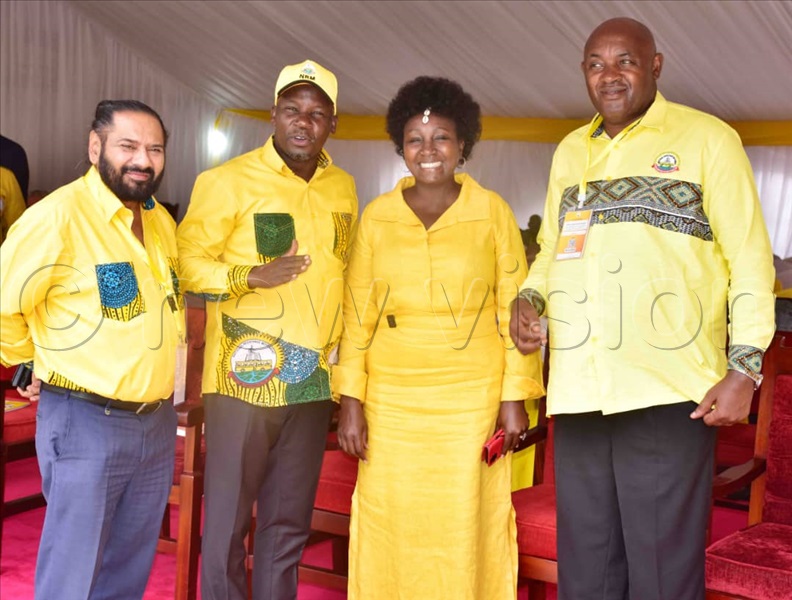
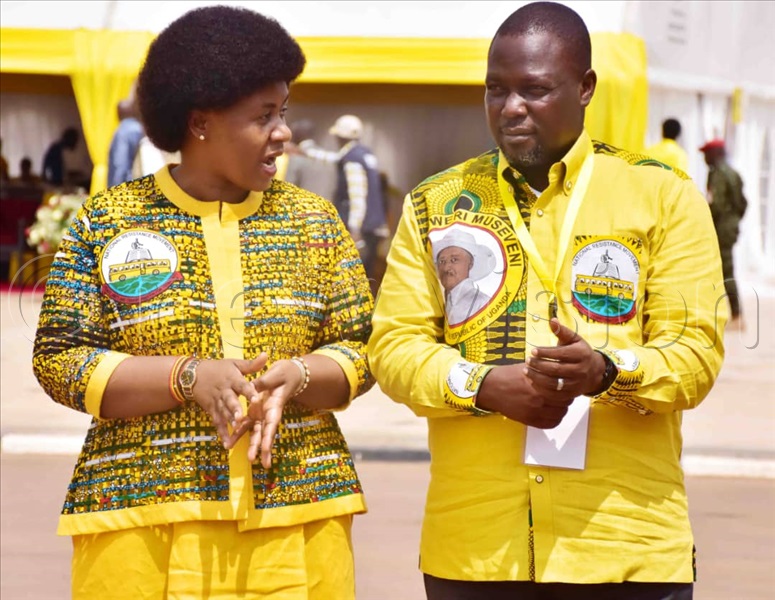
The female vice-chairperson slot
Analysts, therefore, say figures such as Speaker of Parliament Anita Among, backed by former power brokers like the former prime minister Amama Mbabazi and former foreign affairs minister Sam Kutesa, are not just seeking to win seats; they are laying markers for future influence.
Among, who is seeking re-election as Bukedea Woman MP, also wants the CEC position of the 2nd national vice chairperson (female), which is currently held by the First Deputy Prime Minister and Minister for East African Community Affairs Rebecca Kadaga, who is seeking to retain it.
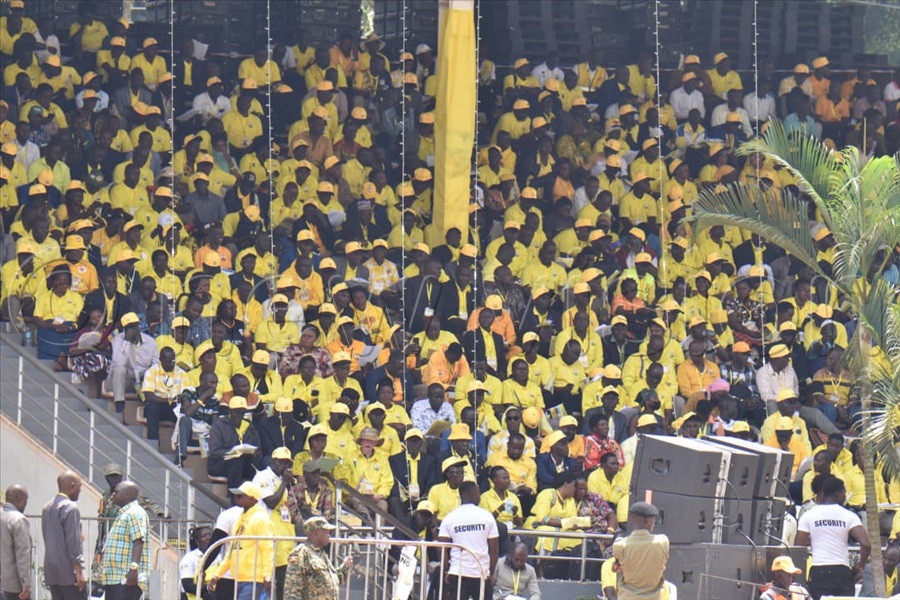
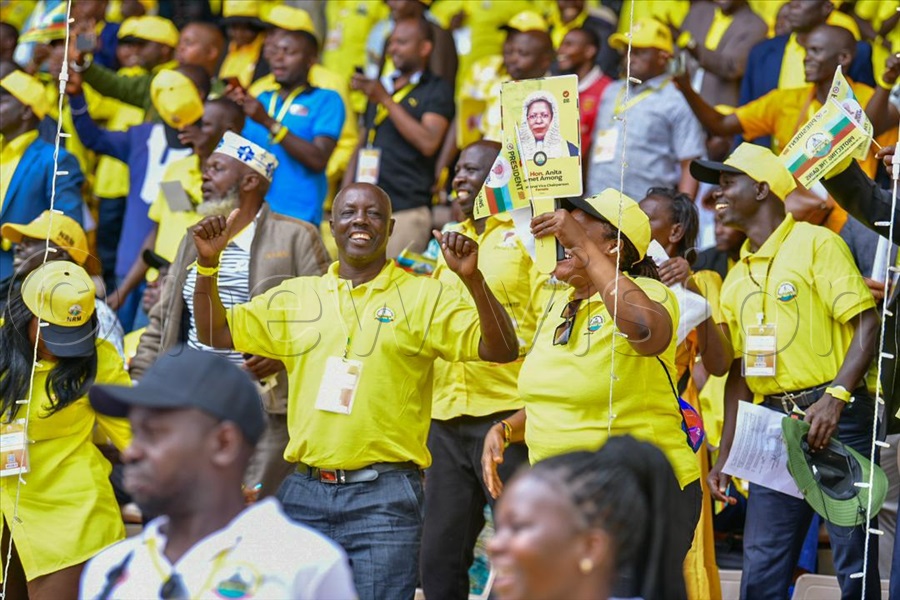
“My standing is to bring value to CEC and the party. The value that I’m going to bring to the party is in terms of mobilisation and making women at a national level a priority,” she told the media after being nominated early last month.
Kadaga, on the other hand, says she actively advocated for the creation of the position of the 2nd national vice chairperson (female) and was confident of retaining it.
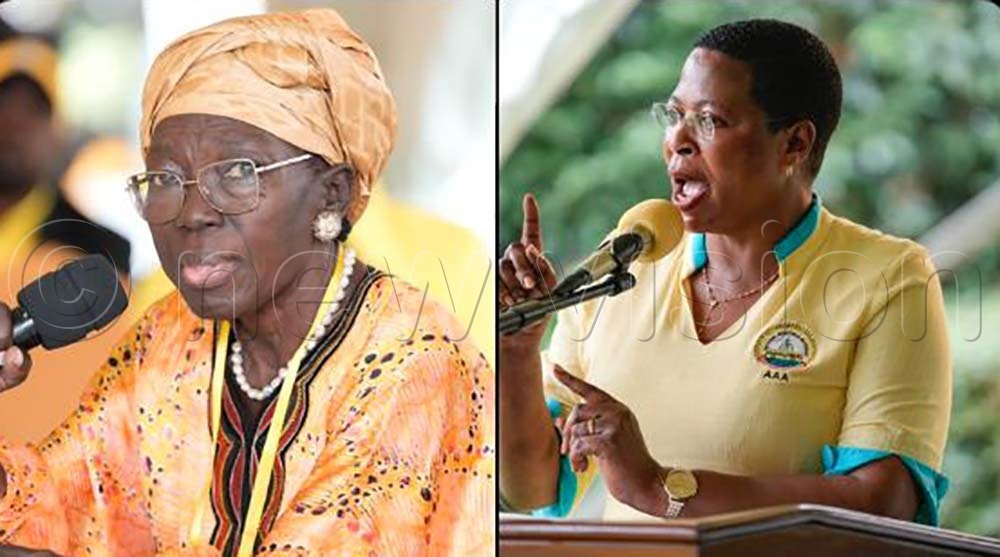
She explained that the genesis of this position was to position the voice, perspectives and strategies that would engender the policy output of the NRM to inform Cabinet and later Parliament.
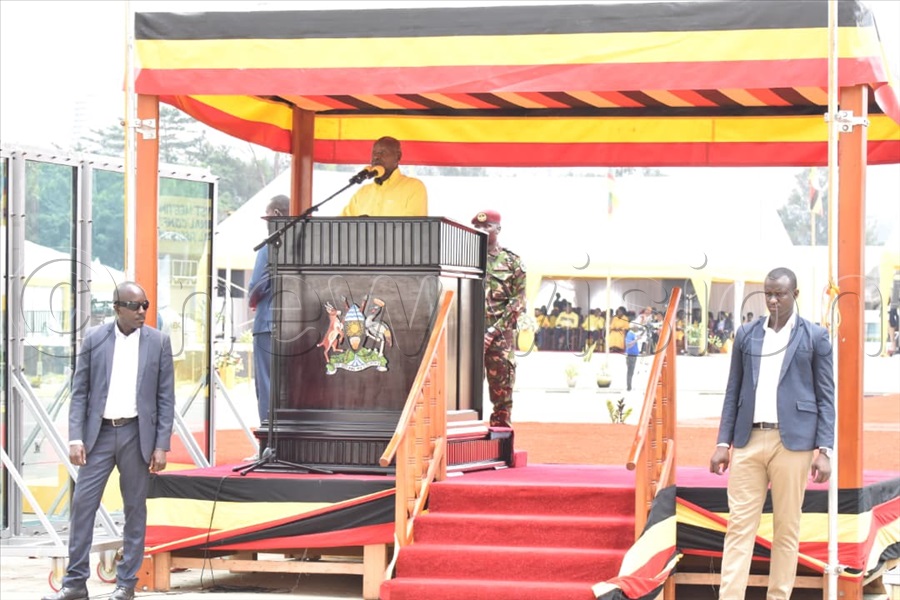
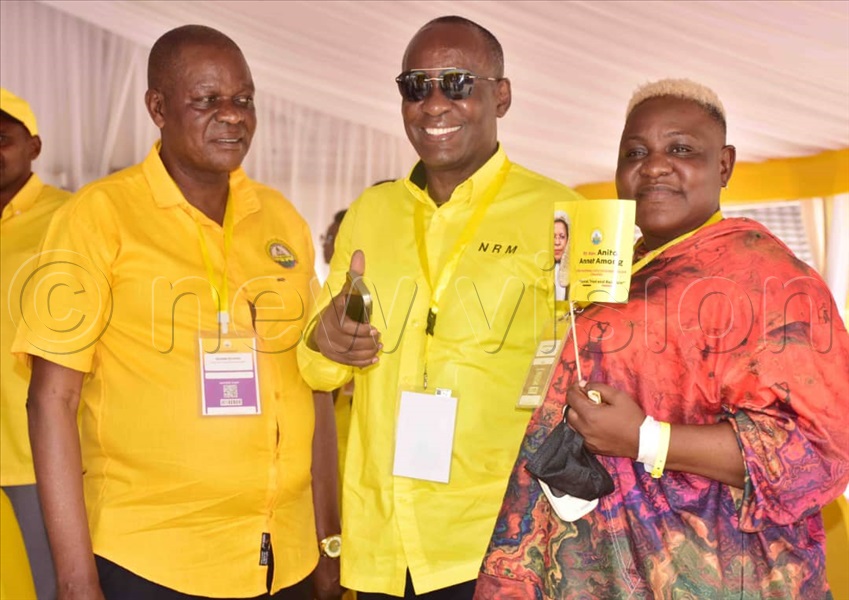
“This position was lobbied for by the NRM women members to bring the women’s perspectives into policy, programmes, and innovation of the party,” Kadaga argued.
The re-emergence of old political actors such as former Vice-Presidents Prof Gilbert Bukenya and Edward Ssekandi as kingmakers or endorsers in this race signals what analysts say is a reactivation of dormant factions within NRM.
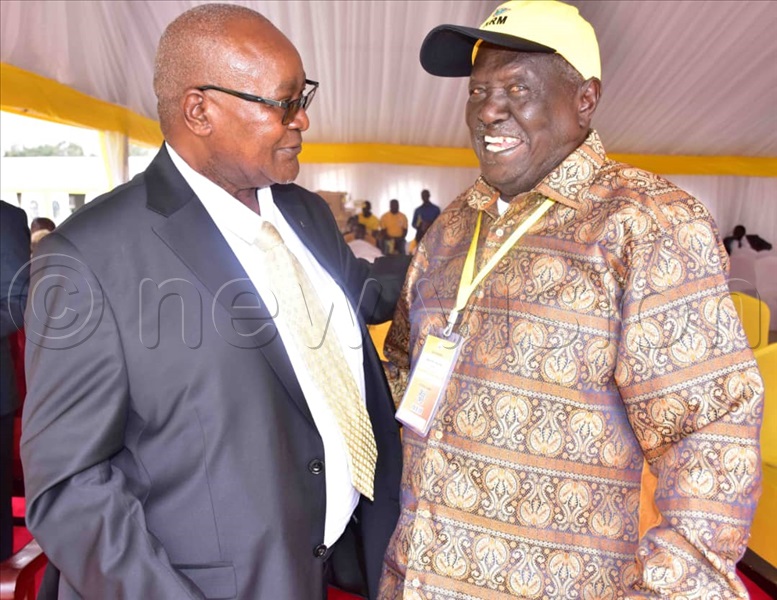
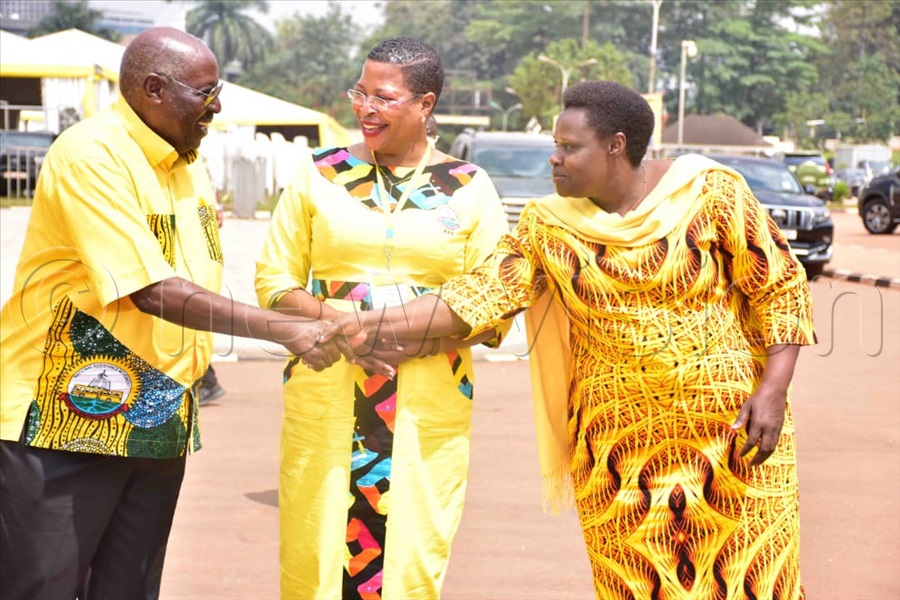
Central region
Both Bukenya and Ssekandi, who is also a former Speaker of Parliament, accompanied microfinance state minister Haruna Kasolo to be nominated last month for NRM’s vice chairperson seat for the central region.
The seat is currently occupied by Godfrey Kiwanda, a former MP and minister, who also wants to retain it.
Flanked by the two former Vice-Presidents who arrived flashing a thumbs-up sign, Kasolo told the media that their decision to accompany him spoke volumes about the need to replace Kiwanda, who is also fighting to reclaim his Mityana North MP seat.
He describes them as strong NRM pillars in the central region.
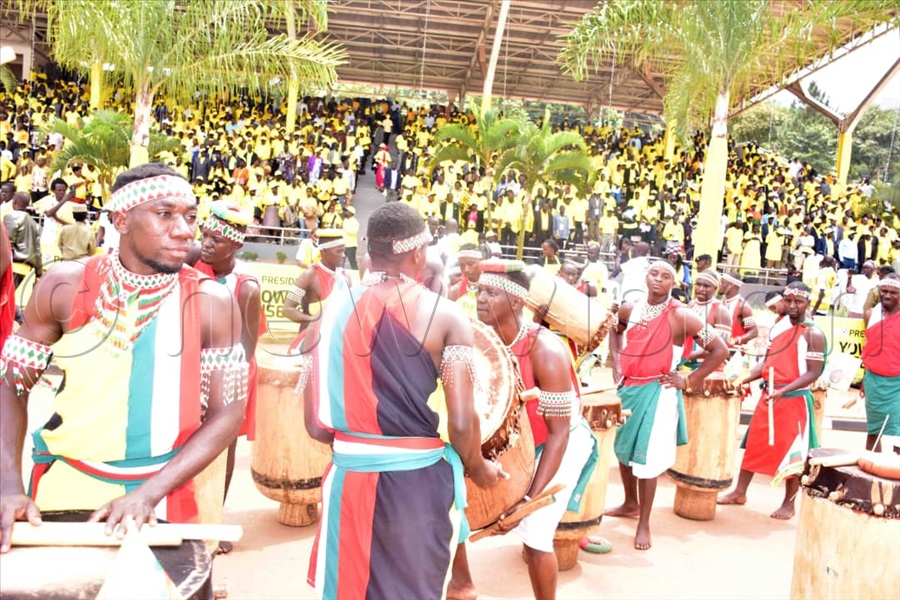
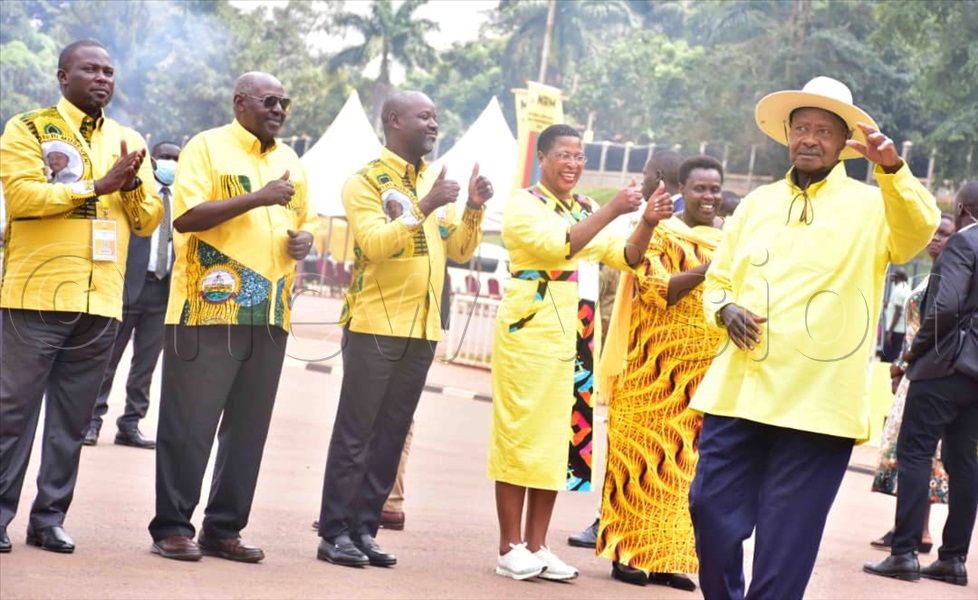
“We want a mobiliser and somebody who will fill up that gap. People in the central region are undecided, but no person can persuade them to go to the government side,” Kasolo says.
Analysts say these are not mere endorsements; they are alignments of ideological and strategic intent.
“What we are witnessing, therefore, is not chaos, but calculated coalition-building. Different political clusters within the party are coalescing around candidates they believe best represent their interests in a changing power terrain,” Kaheru says.
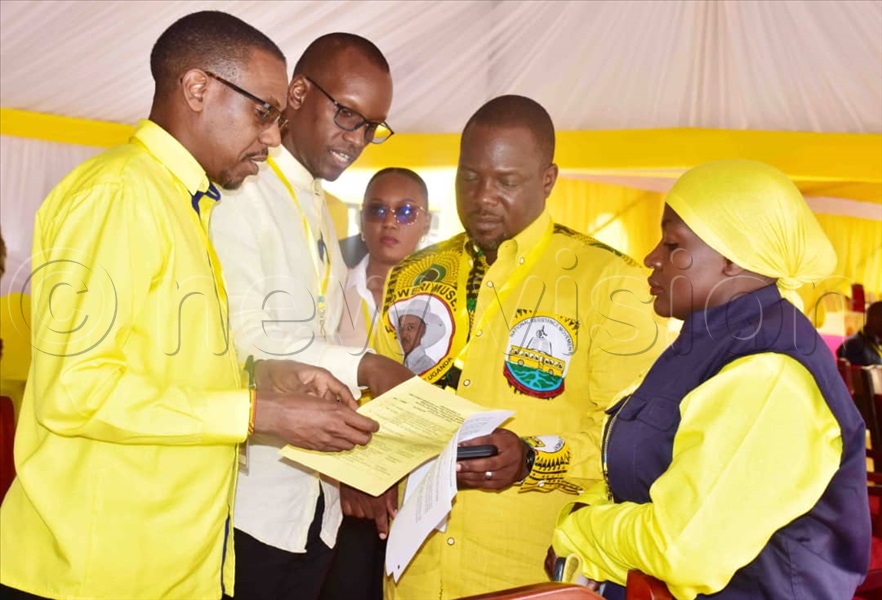
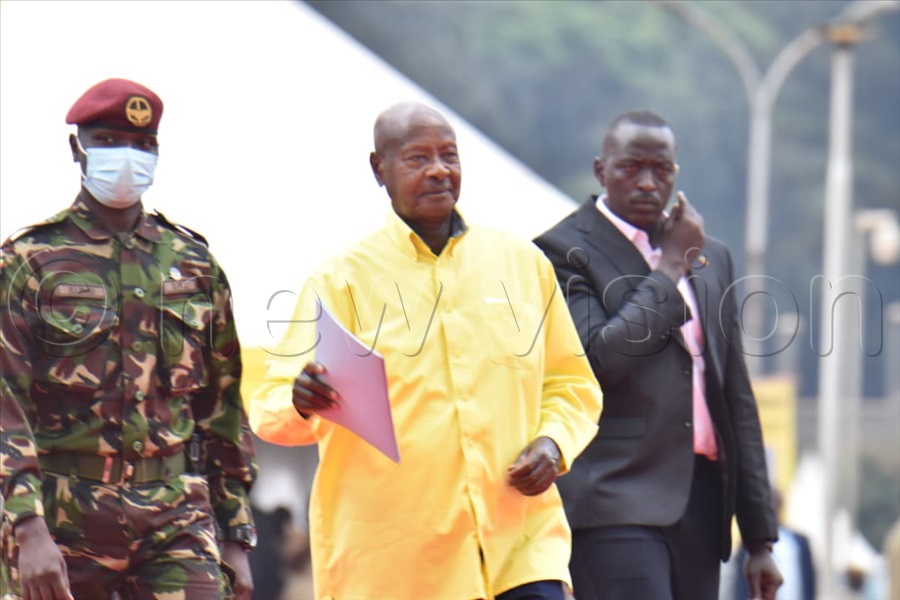
He states that this could explain the rivalry between Among and Kadaga, a contest not just of personalities, but of constituencies within the state.
“For others, the CEC offers something more personal: Legitimacy and political insulation. For instance, politicians facing local discontent, internal party rivalries, or corruption allegations often see CEC membership as a form of political indemnity,” Kaheru said.
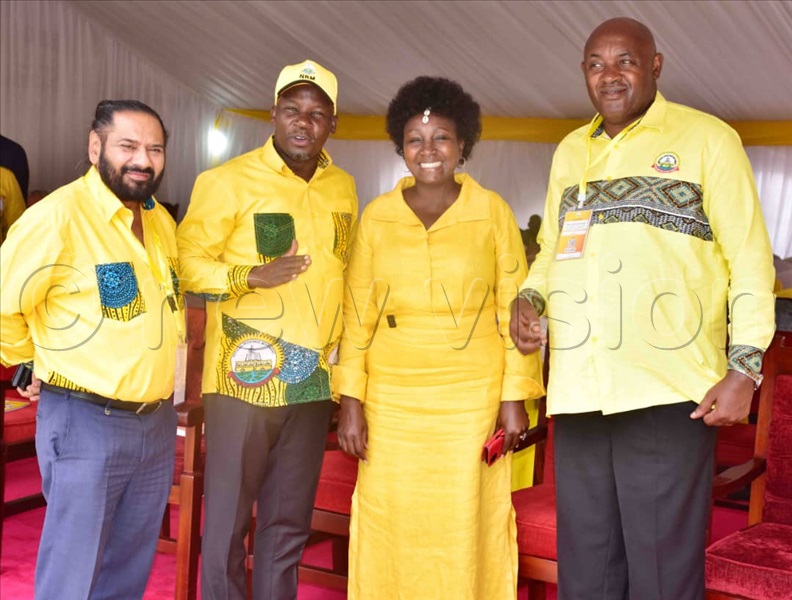
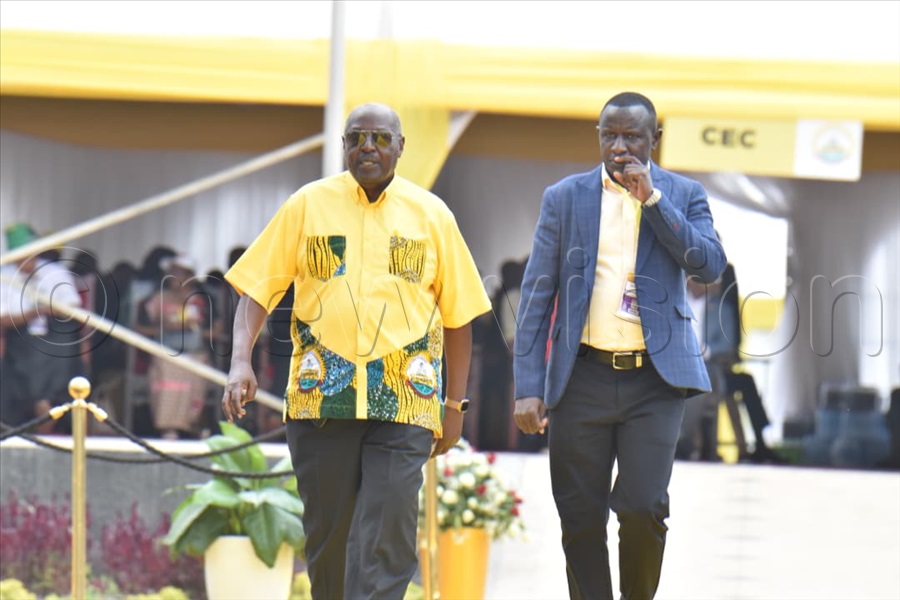
“It offers direct access to the President and can be wielded as both a shield and a sword in navigating Uganda’s turbulent political waters,” he added.
Some seasoned NRM politicians said on condition of anonymity that the symbolism of who backs whom cannot be overstated.
“It speaks volumes about the behind-the-scenes negotiations within Uganda’s political establishment. These are not just political blessings, they are signals to the wider political class about who is in or out of favour, and where future power may lie,” one of these veteran NRM politicians said.
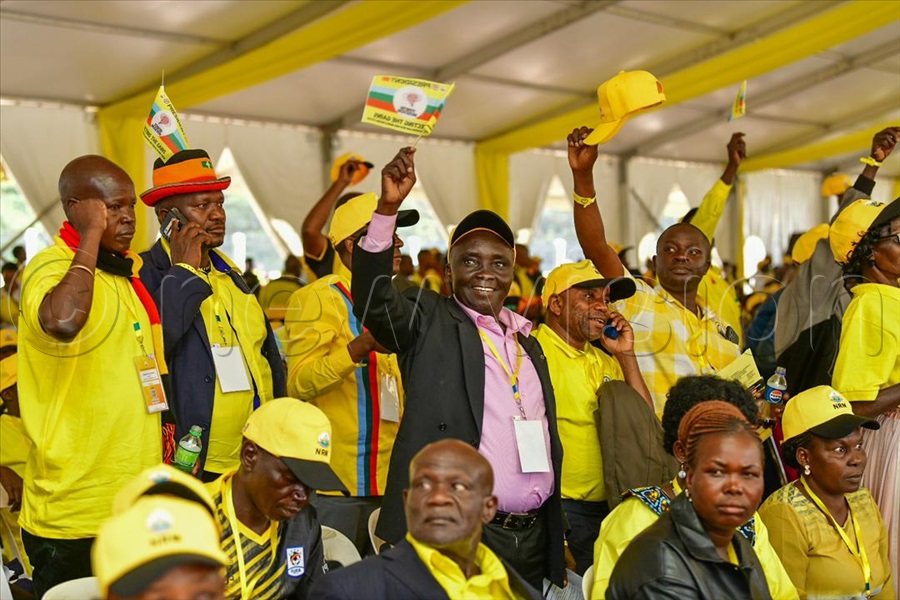
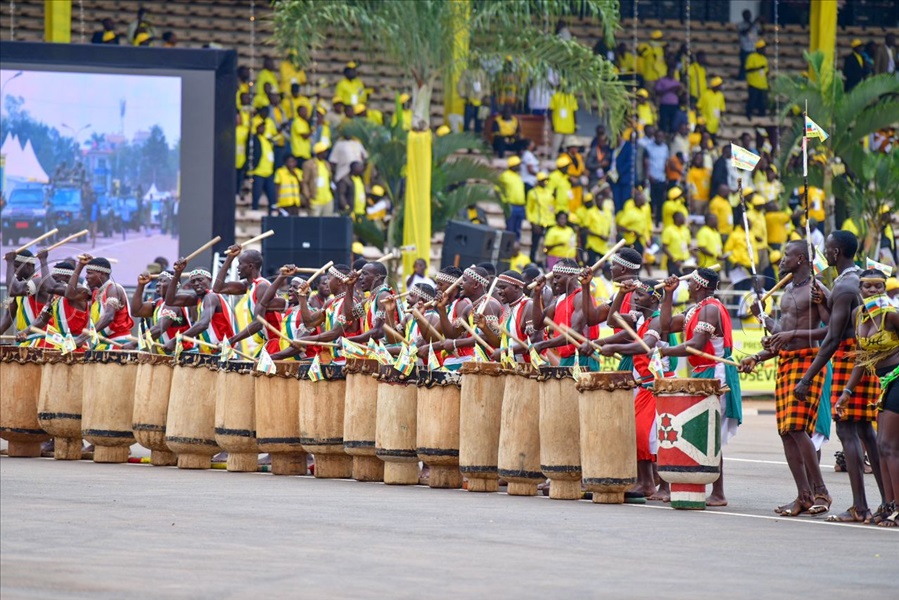
“In a context where formal structures may at times be subordinate to informal influence, such endorsements matter,” the seasoned politician added.
The CEC elections are slated to take place during fourth National Resistance Movement (NRM) national conference, which started today, August 27, 2025, and is ending tomorrow at the Kololo Independence Grounds in Kampala city.